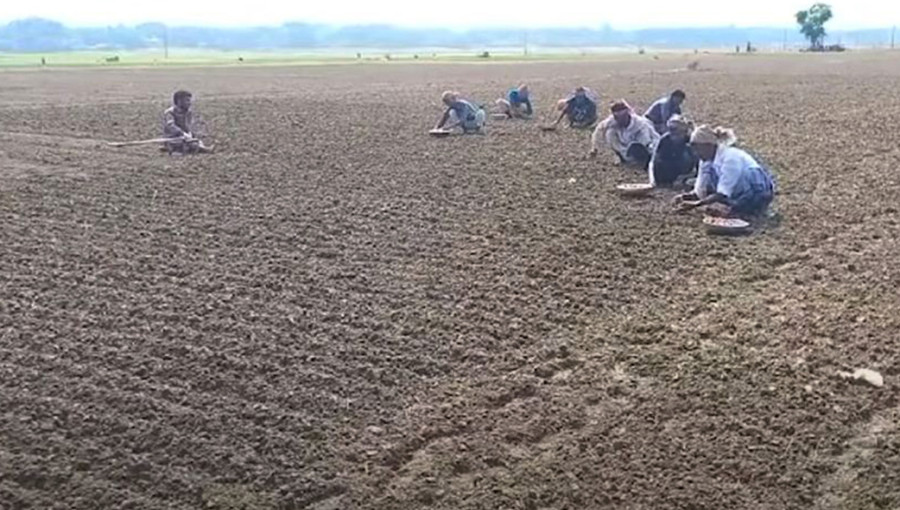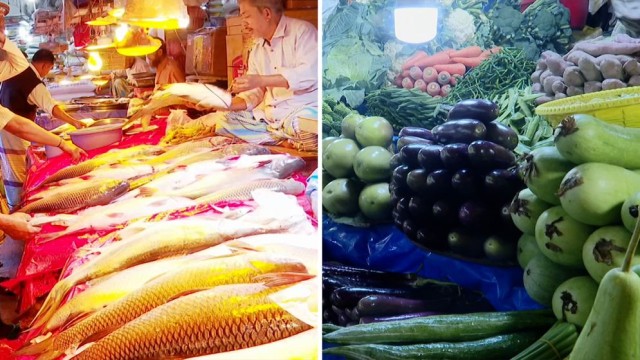Sirajganj, Nov 16 (V7N) – Farmers in several villages of Tarash Upazila, including Saguna Katabari, Nadosaidpur, and Hemnagar, are facing severe challenges in onion and garlic cultivation due to the skyrocketing cost of seeds. The steep increase in production costs has left many farmers in a financial bind, especially during this peak cultivation season.
Farmers report that cultivating one bigha of garlic now requires an expenditure of around 30,000 BDT , while onion cultivation costs have surged to 50,000–55,000 BDT per bigha . This marks a significant rise from the previous year:
- Garlic seeds cost 7,500–8,000 BDT more per bigha compared to last year.
- Onion seeds have seen a dramatic increase of 26,400 BDT per bigha, nearly doubling from last year's costs.
Farmers explained that cultivating one bigha of land requires 3 maunds of garlic seeds and 8 maunds of onion seeds, both of which are now selling at significantly inflated prices.
The high seed prices have placed a burden on farmers, particularly small and marginal cultivators who rely on loans for production costs. Many farmers, like Abu Hanif and Idris Ali, expressed frustration over being forced to sell their crops immediately after harvest at lower prices to repay debts, leaving them unable to benefit from higher market prices later.
Despite these challenges, farmers acknowledge the potential for high yields if the season goes well:
- Garlic yields can reach 38–40 maunds per bigha.
- Onion yields can go up to 80–90 maunds per bigha.
However, they noted that the initial investment has become almost unaffordable for many.
Tarash Upazila Agriculture Officer Abdullah Al Mamun acknowledged the high seed prices but emphasized that a good harvest could offset these costs. He assured that the upazila administration is monitoring the market to address the situation.
The upazila has set ambitious cultivation targets for the current season, aiming for 750 hectares of garlic and 150 hectares of onion across eight unions. Officials remain hopeful about maintaining the region's recent success in spice crop cultivation despite the challenges.
Farmers in the Chalanbil region have traditionally stored seeds at home to reduce costs, but with 70–80% of seeds still sourced from the market, prices have spiraled out of control. Farmers are urging authorities to introduce measures to stabilize seed prices, provide financial aid, and ensure fair pricing during harvest to prevent further financial distress.
Without intervention, the region’s progress in spice cultivation could face setbacks, leaving farmers vulnerable to escalating costs and market fluctuations.
END/SH/AJ


























Comment: